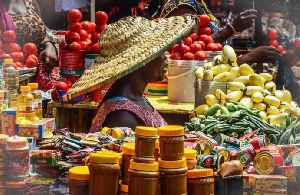In 2005, the Kufuor government initiated plans to establish Ghana as an offshore International Financial Services Centre (IFSC) with a view to attract foreign direct investment, gain income from licence fees payable in foreign currencies, create employment, enhance local skills and knowledge, and strengthen the financial sector through expansion in the use of investment banking instruments.
Even though the first offshore banking licence was issued to Barclays Bank Ghana in 2007, the Mills government revoked the licence in 2011.
However, events following recent parliamentary approval of the Agyapa deal and the ensuing debate on developmental needs of the country, require a reversal of the policy on offshore banking.
According to Bank of Mauritius figures, total deposits from global business banking at the end of June 2018 represented 14.4% of total deposits, or $15.7bn. Hence, there is a case for a policy shift to enable the BOG to issue offshore banking licence so Ghana can harness the full advantages of Banking (Amendment) Act, 2007 (Act 738).
Now, to aid the task of acquiring funds for development, the Parliament of the Republic of Ghana on Friday, August 14, 2020 amidst the matrix of a centre left minority workout, approved five agreements aimed at raising cash through equity financing in line with the Minerals Income Investment Fund (MIIF) Act, 2018 (Act 978).
Equity financing is a method of raising capital by selling company shares to the public, institutional investors, or financial institutions. The entities who buy shares are referred to as shareholders because they have received ownership interest in the company.
The approved agreements by Ghana’s parliament should facilitate the establishment of a special purpose vehicle (SPV), Agyapa Royalties Limited, designed to offload at most, forty-nine percent of shares through the London Stock Exchange (LSE) and Ghana Stock Exchange (GSE).
Furthermore, the assignment agreement between Ghana, MIIF, ARG Royalties Ghana Limited (an entity created by MIIF and assigned rights) and Agyapa Royalties Limited (Agyapa), will ensure capitilisation of Agyapa with an annual cash injection of approximately $200 million, representing 75.6% of total annual mineral royalties from selected mines in Ghana.
In the short-term, through sale of 49% equity in Agyapa on the LSE and GSE, the state expects to reap at least five hundred million dollars cash, to be used to finance special projects in Ghana. In the long-term, the plan is to position Agyapa as a truly giant African royalties company, investing in potentially successful mines and associated value chain infrastructure while rewarding shareholders through dividends.
However, the events before, during and after the passage of the Agyapa deal has generated conspiracy theories about the real intentions of the current NPP government. Critics are baffled that an agreement which took consultants about two years to prepare; that involves volumes of paperwork, was laid before the parliamentary finance committee on 12th August, 2020 only for the minority to be given just four hours to study the documents. Thereafter, the deal was debated once in parliament and passed on 14th August, 2020. Clearly the minority had no choice but to stage a walk out.
The Minority claim they were privy to just two years of historical and present cash flow. No projected cash flow beyond 2020 was made available to them for determination of Net Present Value of Agyapa to enhance decision making.
Moreover, critics are at a loss as to why parliament approved listing of Agyapa as a private company instead of a sovereign owned company which would have secured Ghana control of decision making on the board of Agyapa, considering the fact that the LSE is open to sovereign controlled companies with minimum sovereign equity of 30%.
Critics further wonder why the NPP government and the NPP controlled parliament would want to cede sovereign control of Agyapa even though the state will maintain 51% equity stake in the entity and provide annual capitalization of $200m. These issues have led to accusations of corruption by civil society organisations and the opposition.
In response, the office of special prosecutor in Ghana commenced a corruption risk assessment of the Agyapa deal. Subsequently the Ministry of finance has suspended the intended launch of an Initial Public Offer (IPO) of the Agyapa Mineral Royalties Limited until the results of the corruption risk assessment is communicated.
It is evident from the ongoing discourse between the political parties in the run up to the 2020 elections that government needs additional revenue to provide educational, medical, agricultural, rural and urban road infrastructure, airports, human capital development, et cetera.
Since the traditional means of raising revenue are exhaustive, it may be prudent to remove the policy restrictions preventing BOG from issuing offshore banking licences so Ghana like Mauritius can harness the full advantages of offshore banking.
Generally, offshore banks provides privacy, less restrictive legal regulation, minimal taxation, easy access to deposits and most importantly, protection against local political or financial instability to depositors who may not necessarily reside in the country. Therefore, to kick start the offshore banking process, the Kufuor government signed a memorandum of understanding with Barclays Bank Ghana in June, 2005 to help develop an offshore haven called the IFSC.
In 2006, the government of Ghana and Barclays Bank Ghana worked together to design the operational, legal, regulatory and organisational framework of the (IFSC). This included research by global consulting firm Grant Thornton Mauritius (Mauritius office of international accounting firm) on the feasibility of such a centre in Ghana, drawing on Mauritius’ experience.
Additionally, a working paper — “Development of Offshore Financial Services Centre in Ghana: Issues and Implications” — was published by the Bank of Ghana, in 2006.
Then, in 2007 the parliament of Ghana passed an amendment to the Banking Act, 2004 (Act 673) to facilitate the establishment of an IFSC. The Banking (amended) Act, 2007 (Act 738) was given presidential assent on 18th June, 2007 and in September 2007 Barclays Ghana was given the first offshore banking licence by the Bank of Ghana.
It is however not clear whether the actions of the Mills government to revoke the offshore licence given to Barclays Ghana was due to fear that a financial haven in Ghana would fuel corruption and crime in West Africa. Whatever the reason, it may seem the centre of left policy directive of the NDC, with Amissah Arthur as Governor of the Bank of Ghana may have let Ghana down.
Twelve years after promulgation of Act 738, Ghana is yet to derive the full benefits of the law despite the fact that Ghana needs billions for development. This situation cannot continue. Hence the political parties must work to ensure that offshore banking can take off smoothly so foreign direct investment, availability of jobs and expansion of financial services will propel Ghana’s economy.
Opinions of Monday, 12 October 2020
Columnist: Baafuo Osei















